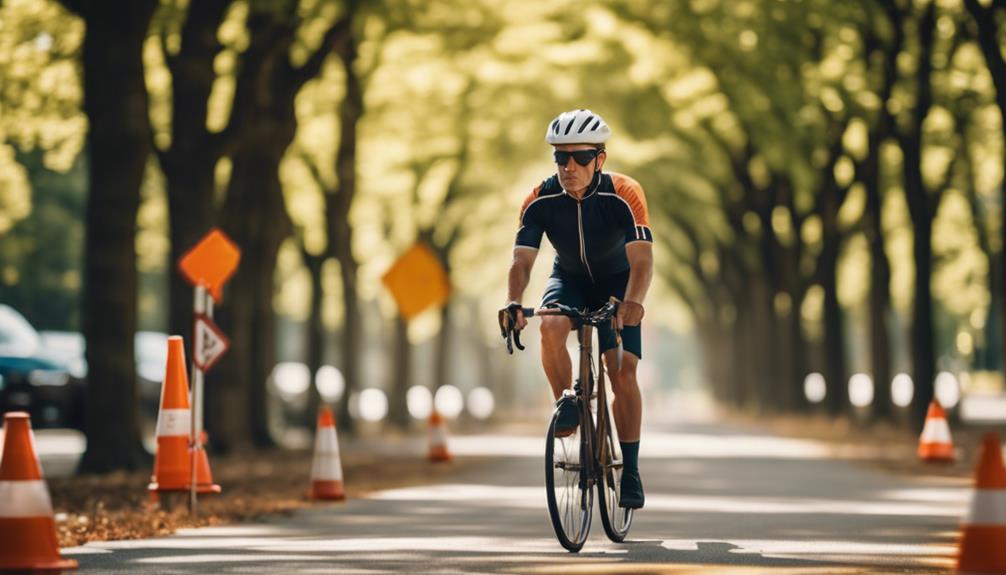Learning to ride a dirt bike can be an exhilarating journey, opening up a world of adventure and outdoor exploration. However, the path to becoming a proficient dirt bike rider requires proper education and training. With the increasing popularity of off-road riding, various resources are available for those eager to learn. This article explores the options for dirt bike riding education, including local schools, online resources, community programs, and essential safety gear.
Understanding the Basics of Dirt Bike Riding Education
Before embarking on your dirt bike riding journey, it’s crucial to understand the fundamental principles of riding education. Dirt bike riding encompasses various skills, including balance, throttle control, and braking techniques. Learning these basics is essential for both safety and enjoyment. A structured educational approach helps beginners grasp the necessary skills while minimizing the risk of accidents. How To Register My Bike
Moreover, understanding the mechanics of a dirt bike is fundamental to riding effectively. Knowledge of how to maintain and troubleshoot basic issues can enhance a rider’s confidence and independence on the trails. Thus, starting with a solid educational foundation can pave the way for a successful riding experience.
Types of Dirt Bike Riding Courses Available for Beginners
When it comes to learning to ride a dirt bike, several types of courses cater specifically to beginners. Some courses focus on the basic skills required for operating a dirt bike, while others may provide comprehensive training, including advanced techniques. These courses often include both theoretical instruction and practical riding sessions, allowing students to apply what they’ve learned in real-time conditions.
Additionally, many riding schools offer specialized courses that cater to different age groups and skill levels. For instance, youth programs are designed for younger riders, often incorporating fun elements while emphasizing safety. Understanding the range of available courses can help you choose the one that best fits your learning style and goals.
Local Dirt Bike Schools: Finding Options Near You
Finding a local dirt bike school can significantly enhance your learning experience. Many regions offer riding schools that specialize in dirt bike education, providing a structured environment with experienced instructors. A quick online search or consultation with local riding communities can yield a list of reputable schools in your area.
Visiting these schools can also provide firsthand insights into their programs and facilities. Many schools offer introductory classes, allowing prospective students to get a feel for the environment before committing to a full course. Checking reviews and testimonials can further guide your decision-making process.
Online Resources for Learning Dirt Bike Riding Techniques
In today’s digital age, online resources have become invaluable for aspiring dirt bike riders. Numerous websites, videos, and forums provide tutorials and tips on various aspects of riding. These resources can complement formal education, allowing riders to explore techniques at their own pace. From understanding body positioning to mastering cornering techniques, online platforms offer a wealth of information.
Moreover, many experienced riders and professionals share their knowledge through blogs, YouTube channels, and social media. Engaging with these online communities can help beginners ask questions and gain insights from seasoned riders. Utilizing these resources effectively can significantly enhance your understanding of dirt bike riding techniques.
Community Programs and Clubs Offering Riding Lessons
Community programs and clubs dedicated to dirt biking can offer valuable learning opportunities. Many of these organizations provide structured classes and mentorship from experienced riders. Joining a local dirt bike club not only allows you to access riding lessons but also fosters a sense of camaraderie among enthusiasts.
Additionally, these clubs often organize events and group rides, providing practical experience in a supportive environment. Involvement in community programs can help you establish connections with other riders, potentially leading to mentorship opportunities and partnerships for practice sessions.
Safety Gear: Essential Equipment for Dirt Bike Riders
Safety should be a primary concern for any dirt bike rider, especially beginners. Proper safety gear is essential to protect against potential injuries while riding. The fundamental equipment includes a helmet, gloves, goggles, and durable riding boots. Investing in high-quality gear ensures that you are adequately protected while also enhancing comfort during rides.
In addition to the basics, riders should consider wearing protective clothing such as padded jackets and knee guards. These items provide added protection against abrasions and impacts, which are common in dirt biking. Familiarizing yourself with appropriate safety gear is crucial for a safe and enjoyable riding experience.
What to Expect in Your First Dirt Bike Riding Class
Your first dirt bike riding class will likely focus on foundational skills and safety protocols. Instructors typically begin with a briefing on the mechanics of the bike, including throttle control, braking, and steering. Following the introduction, practical sessions may involve basic exercises to help you gain confidence while handling the bike.
Expect to spend a significant amount of time practicing in a controlled environment, where your instructor can provide real-time feedback and guidance. This structured setup ensures that you learn at a comfortable pace while receiving personalized attention to address specific challenges you may face.
Experienced Instructors: Key to Effective Learning
The importance of experienced instructors in your dirt bike riding education cannot be overstated. Knowledgeable instructors possess not only the skills necessary to teach but also the ability to recognize a student’s unique learning style. Their expertise allows them to tailor lessons, ensuring that you develop the necessary skills in a supportive environment.
Moreover, seasoned instructors can offer insights into common mistakes and challenges faced by beginners. Their ability to provide constructive feedback can significantly accelerate your learning process, helping you to build confidence in your riding abilities. Investing time with experienced instructors can yield long-term benefits as you continue your dirt biking journey.
Practice Areas: Where to Hone Your Riding Skills
Finding suitable practice areas is essential for honing your dirt bike riding skills. Many local tracks, trails, and off-road parks cater to different skill levels and provide a safe environment for practicing. These venues often have designated areas for beginners, allowing you to gradually progress as your skills improve.
Additionally, connecting with local riders can lead to recommendations for practice locations. Some clubs and organizations also host events or open riding days, providing opportunities to practice in a community setting. Exploring various practice areas can enhance your riding experience and help solidify your skills.
Tips for Choosing the Right Dirt Bike for Beginners
Selecting the right dirt bike is a crucial step for beginners embarking on their riding journey. Factors to consider include the bike’s size, weight, and engine capacity, as well as your physical stature. A motorcycle that is too large or powerful can be challenging to handle, potentially causing frustration and discouragement.
Additionally, new riders should consider starting with a bike designed for beginners, which often features user-friendly controls and lower power output. Test riding different models can help you find the perfect fit for your needs. Prioritizing comfort and confidence in your choice will contribute to a more enjoyable learning experience.
Learning to ride a dirt bike is an exciting endeavor that requires the right education, resources, and support. By exploring local schools, online resources, community clubs, and proper safety gear, aspiring riders can effectively navigate the journey from novice to skilled rider. Remember, patience and practice are key components of mastering this thrilling sport. Whether you are taking your first lesson or honing your skills in practice areas, embracing the learning process will lead to countless adventures on the trails ahead.


